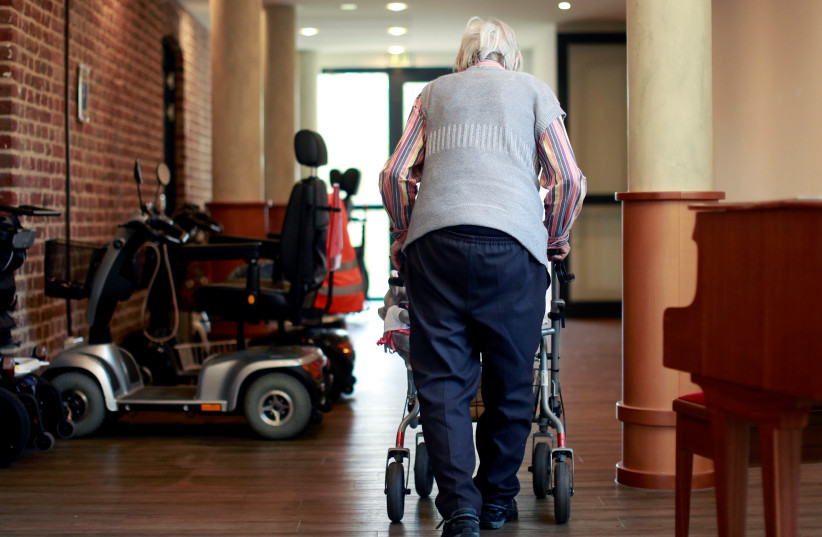During the war, should we think about the preservation of health in old age, the prevention of aging-related diseases, and the extension of healthy longevity?
As children and youth are now threatened, as we are concerned with daily survival and overcoming the immediate danger as soon as possible, should we also think for the long term about the extension of our life expectancy and healthy life expectancy?
And in the social area, when our national policies and international politics in relation to Israel are mainly, if not exclusively, related to the war, is there a rationale and motivation to be concerned with national programs for healthy old age and with enhancing international cooperation in the healthy longevity field?
Yes, we should. We should continue to think about and work for healthy longevity even now, to improve our national resilience that will help us overcome the present adversity and maintain the basis for positive development in the future when the adversity will be undoubtedly over and security will return.
Military service benefits longevity
According to a well-publicized study by the Taub Center for Social Policy Studies in Israel, the high life expectancy of Israeli men (which now stands at about 81 years, one of the highest in the world, compared to about 84 for Israeli women) is largely thanks to their military service.

Presumably, the increase in life expectancy is not due to fighting, but rather due to such factors as discipline, regimen, self-control, physical exercise, and the sense of community and purpose. All these qualities can help us survive in this difficult period, and can provide a better ground for extending our healthy longevity in the future.
The sense of community and purpose are especially important. A great number of studies demonstrate that communal involvement and volunteering are among the most effective ways to extend healthy and productive longevity and improve the quality of life for the general public, and for older people in particular.
Now we are witnessing a true upwelling of volunteering and solidarity of Israeli citizens, from all sectors and all walks of life, religious and non-religious, Jews and Arabs. It is hoped that this sense of community and common purpose, contributing to national resilience, will help us all overcome the present hardships and form a basis for future improvements in healthy longevity.
And yet another vital factor that will likely help us overcome now and contribute to our resilience in the future, is the sense of hope itself. Clearly, it is now especially difficult to plan for the long term. Moreover, the thoughts of aging are commonly suppressed even in calmer times, diminishing people’s involvement in aging-related issues. And now, understandably, they may be suppressed even more. Still, a positive long-term vision of the future that takes into consideration the aging trends, is needed to enhance present-day survival.
Among other vital concerns, this vision should include improving aging health, not just through well-known lifestyle measures (such as exercise, sufficient sleep, and balanced nutrition) but also by enhancing research, development, and education for healthy longevity and prevention of aging-related diseases, creating new therapies and technologies to treat aging-related ill health.
As we don’t yet have all the solutions for aging health, new solutions must be researched, developed, and disseminated by education as soon as possible.
The positive vision of the future must also involve enhancing international cooperation. As healthy longevity is a unifying goal for all people, it may eventually help bring Israelis and their neighbors together and help us outgrow the present violent conflict, which is in many ways juvenile.
The development of healthy longevity regimens, therapies, and technologies may also improve Israel’s standing and acceptance in the world, as the issue is relevant for the entire world.
It may boost the economic development and cooperation in the region, thanks to the burgeoning “healthy longevity industry.”
Despite the understandable shift of focus and priorities, the work to enable a positive vision of the future continues even in this time.
For example, throughout October, Israeli advocates for healthy longevity were at the forefront of organizing a global “Longevity Month” campaign for older persons’ rights and enhancing research, development, and education for healthy longevity.
Yet another positive example is the first Baltics Conference on Healthy Longevity that will take place on November 25, in Riga, Latvia, that is being organized by the recently established Longevity Alliance Baltic, with a strong cooperation of Israeli longevity researchers and advocates from the Israeli Vetek (Seniority) Association – the Movement for Longevity and Quality of Life.
The writer is chairman of Vetek (Seniority) Association – the Movement for Longevity and Quality of Life, Israel.
